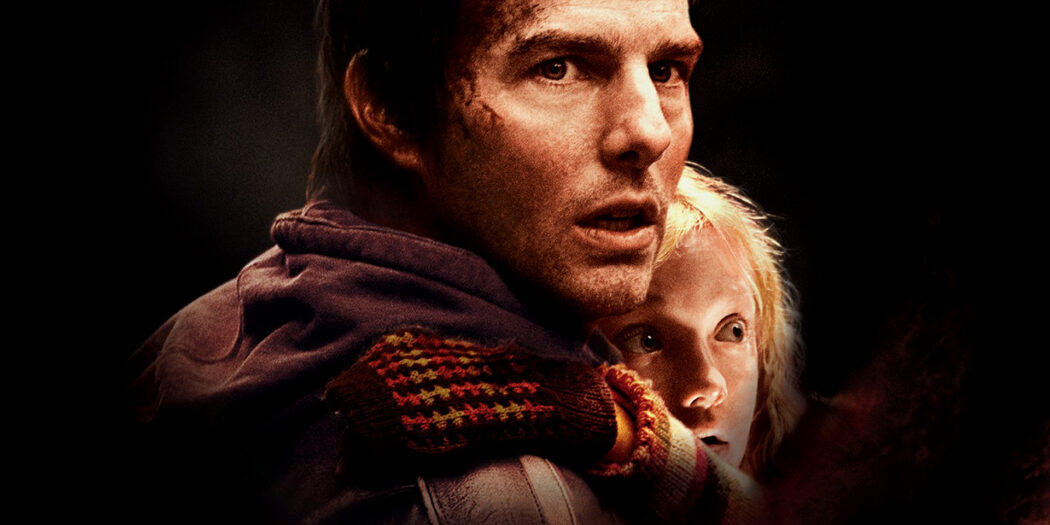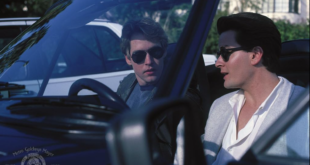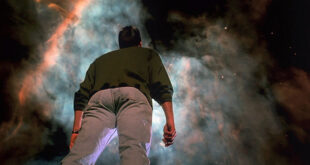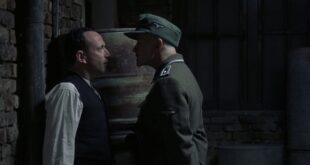“For the first time in my life, I’m making an alien picture where there is no love and no attempt at communication.”
– Steven Spielberg
Steven Spielberg and Tom Cruise. Those two names alone are monsters in the motion picture industry, and both have profoundly impacted cinema in general. The idea of them reteaming after the excellent 2002 film Minority Report to take on the science fiction story of all science fiction stories, H.G. Wells’s War of the Worlds. Released in the Summer of 2005, I remember this was a highly anticipated blockbuster release. This was also during Tom Cruise’s public meltdown in 2005. The publicity tour for this film was not smooth in the least. Even before that was his infamous moment on Oprah, he bizarrely declared his love for Katie Holmes. So this film was released at the height of Tomkat mania, and Tom Cruise is in the news. At the time, I think that clouded my opinion of how truly harrowing and relentlessly compelling and grim Spielberg’s War of the Worlds is.
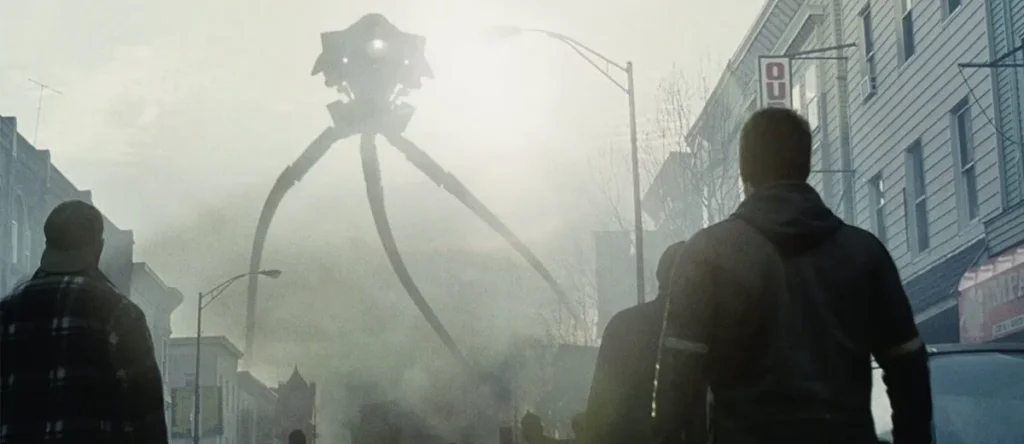
I admire the writing because it’s more interesting to see how flawed people find their footing during extreme circumstances. Mentioning Tom Cruise’s public controversies at the time is interesting because it almost finds its way into Cruise’s performance as Ray Ferrier. He brings a bizarre energy to a highly flawed Dad. He’s not a good parent. The opening scenes where we get to know Ray are awkward and tense. When it becomes about Ray surviving and ensuring his family stays, he seems more in his element versus the everyday ins and outs of being a human being. The writing of first act by Josh Friedman and David Koepp is tightly written and builds the suspense and dread perfectly. I think it’s one of Tom Cruise’s best performances. His range here is tremendous and has always been an underrated part of him as an actor. No, I’m not a Scientologist.
“As man dominated the world, without a doubt, much in the way microorganisms swarm in a drop of water, these beings plotted to take it all from them.”
Speaking of dread, this is not E.T. The Extra-Terrestrial or Close Encounters of the Third Kind, where the aliens are not out to destroy the planet. The opening narration above, provided by Morgan Freeman, makes this clear. Spielberg was also drawn to the script because the kids played in the film by Dakota Fanning and Justin Chatwin had divorced parents, and Spielberg also grew up with divorced parents. Most importantly, though, the specter of the September 11th attacks loomed large over the picture’s tone. 9/11 looms large over the film, and perhaps in 2005, that made audiences uncomfortable, but the scenes of tension during the alien attacks and the human interactions after are incredibly intense.
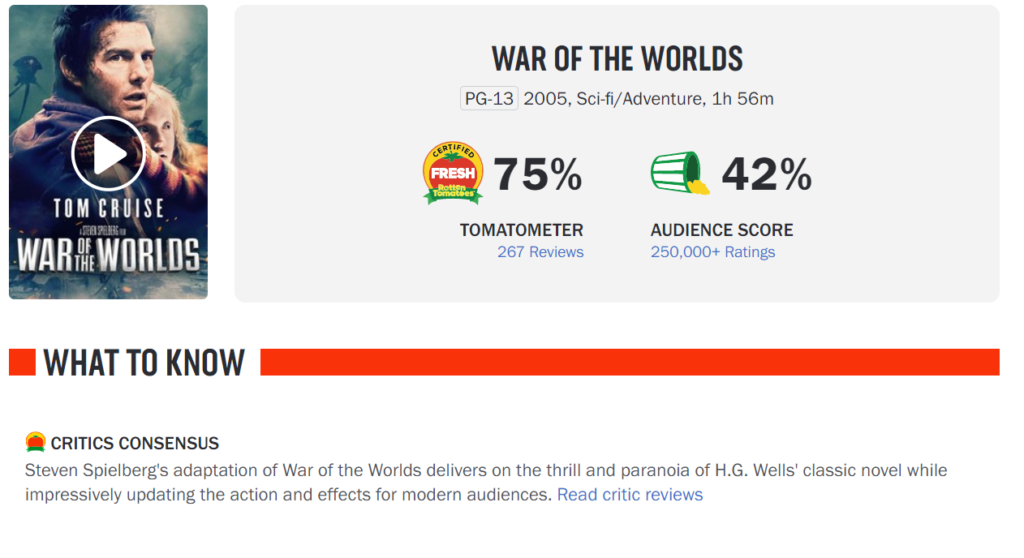
I chose War of the Worlds for Unsung Cinema because, at the time, I remember critical reaction was relatively muted. It did well at the box office even with the controversy surrounding Cruise. The plight of the fictional survivors reflects Spielberg’s uncertainty after the devastation of that event. That’s reflected in the tone, which is often described as grim. War of the Worlds was a hit at the box office, but the critical reaction was mixed to positive. The fan reaction was more mixed with a B+ CinemaScore (which is actually meh). I remember seeing it in theaters with my friends and being taken aback by how harrowing and tense it was while underwhelmed by the ending, perhaps the most common complaint against this film. This is one of the rare films I’m defending from the audience rating instead of the critical rating. I think 75% is fine, if a little low, but a 42% audience score? That no doubt has to do with the adverse reaction to the ending.
I have come to terms with this ending, though, and it no longer bothers me. Still, it’s not thought of really as top-flight Spielberg. His usual pattern in the 90s and 2000s was Summer blockbuster (Jurassic Park) followed by serious Oscar contender (Schindler’s List). War of the Worlds was intended to be his blockbuster of 2005, while Munich, released during Oscar season, was his awards film. Munich also deals with 9/11 haunting the proceedings as well. There are strong references to suicide bombing, which Ray uses later in the movie against the tripods to blow them up from within. It’s an interesting inverse of an alien invasion movie and current events of the time.
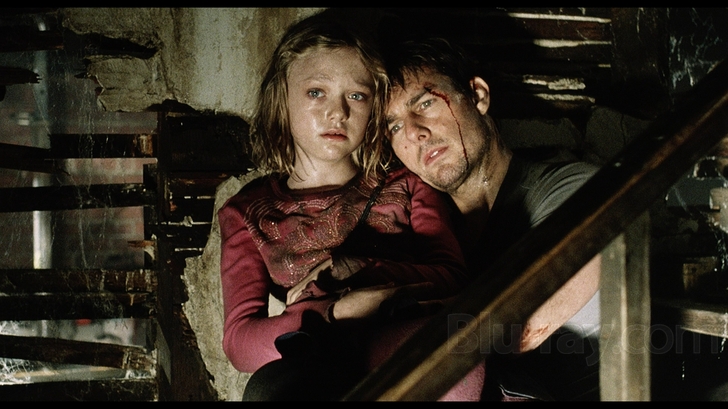
War of the Worlds is a film about a family struggling to unite during a great crisis. Family is always a theme in Spielberg films. I don’t particularly agree with the director’s American Exceptionalism as expressed in films like Saving Private Ryan (1998). Ultimately, War of the Worlds is about the Yankee can-do spirit and the triumph of family values, but getting there is a lot more harrowing and tense than past Spielberg films, and this guy directed Schindler’s List. The film is a direct response to post-9/11 fears at the time, making it one of the essential films about 9/11 ever made. The film is also based on the notorious H.G. Wells novel, adapted for radio by Orson Welles in 1938, and caused a great panic because people thought aliens were invading!
The most unsettling violence in cinema is what’s implied. There’s an alarming immediacy to it all, and the difference here is Spielberg’s craftsmanship of the action scenes. Like all the great filmmakers who have ever existed, Spielberg is very audience conscious and knows how to play with their fears and emotions. He uses light and sound to suggest the worst rather than drench his films in blood. Spielberg also understands panic situations and how to shift feelings and pace. Another complaint against this film is the second half slows down a lot and that the ending jumps the shark. I’m not here to defend the conclusion. The son surviving felt like a cop-out. However, given the dreariness and nonstop tension and dread of the proceeding 110 minutes, some hope for the proceedings at the end was welcome, if not entirely naturally done.
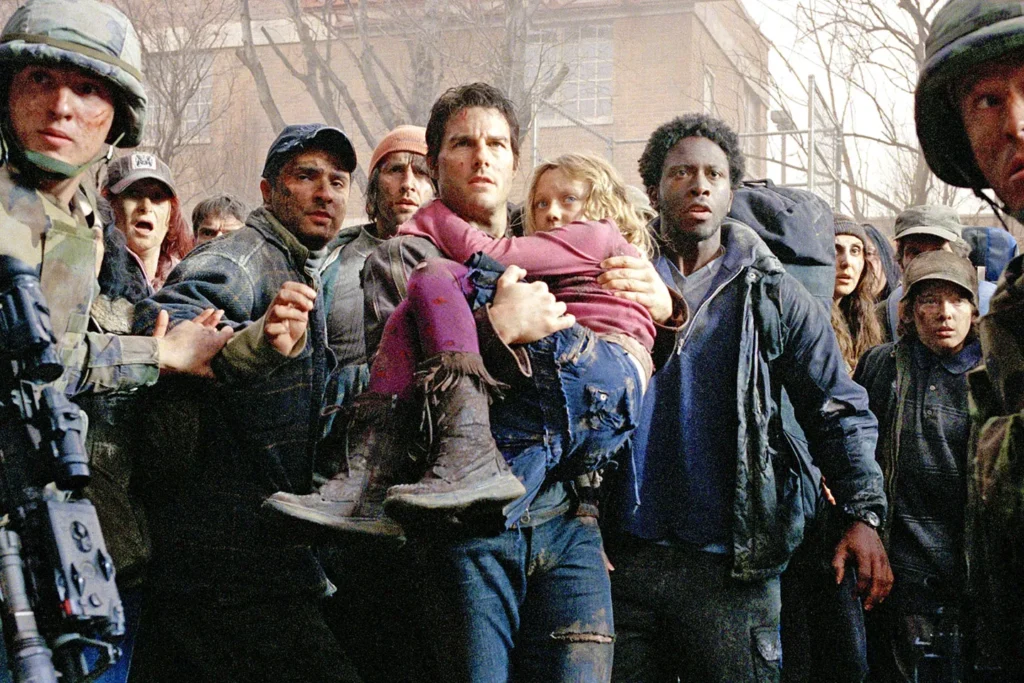
War of the Worlds is magnificent filmmaking nonetheless. Even the much-maligned Tim Robbins sequence has tension, and I like Tim Robbins, but he makes you hate him. Also, I need to show some love for the much-maligned Dakota Fanning, who, at the time, many complained, was just a ten-year-old scream queen; it’s a phenomenal performance. Spielberg has always been great at getting fantastic performances from children actors. I also felt the ending was brave in the face of post-9/11 militarism and pro-war fever (though by 2005, that subsided). Ultimately, it’s not the military that defeats the aliens. It’s the Earth’s microbes. Wells, in a way, was saying colonialism is due to failure, and if humans don’t stand up against the aliens, the Earth’s organisms will. Perhaps humanity will too. It’s an interesting way to think of a hated ending. The most important thing is characters grow, and Ray grows.
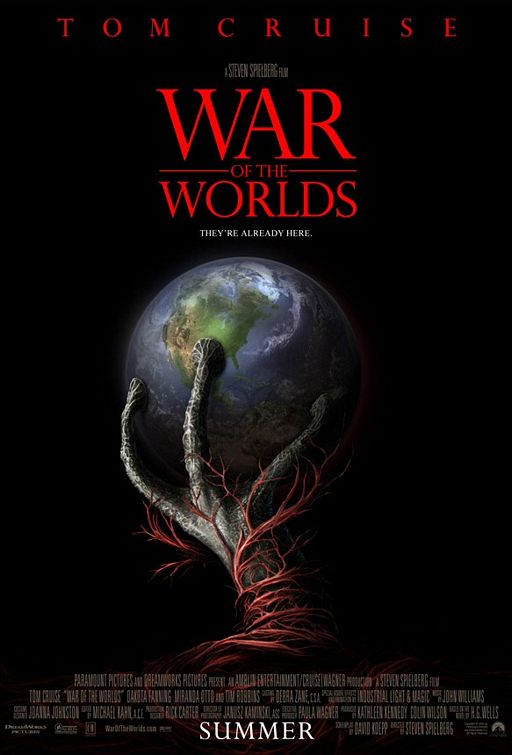
 Movie Finatics The Place for Movie Lovers
Movie Finatics The Place for Movie Lovers
